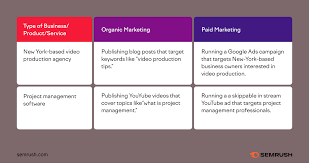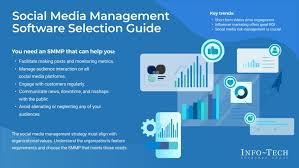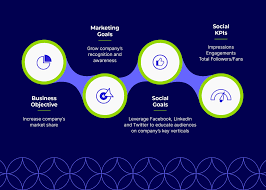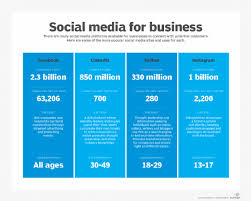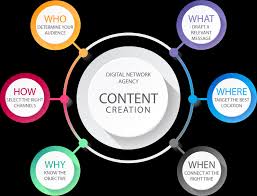Social Media Management Strategy: A Key Component of Digital Marketing
Social Media Management Strategy: A Key Component of Digital Marketing
Social media has become an integral part of the digital marketing landscape, offering businesses a powerful platform to connect with their audience, build brand awareness, and drive engagement. However, without a well-defined social media management strategy, businesses may struggle to harness the full potential of these platforms.
A robust social media management strategy is essential for businesses looking to make a meaningful impact on platforms such as Facebook, Instagram, Twitter, LinkedIn, and more. It involves planning, implementing, and monitoring social media activities to achieve specific goals and objectives.
Key Elements of an Effective Social Media Management Strategy:
- Goal Setting: Define clear and measurable goals for your social media efforts, such as increasing brand awareness, driving website traffic, or generating leads.
- Target Audience Analysis: Understand your target audience’s demographics, interests, and online behaviour to tailor your content and messaging accordingly.
- Content Strategy: Develop a content calendar with engaging and relevant content that resonates with your audience and aligns with your brand identity.
- Platform Selection: Choose the right social media platforms based on where your target audience is most active and where your business can best showcase its products or services.
- Engagement Plan: Respond promptly to comments, messages, and mentions to foster meaningful interactions with your audience and build relationships.
- Analytics & Monitoring: Regularly track key performance metrics to evaluate the effectiveness of your social media efforts and make data-driven decisions for improvement.
An effective social media management strategy not only helps businesses enhance their online presence but also allows them to stay ahead of competitors in a crowded digital landscape. By consistently delivering valuable content, engaging with followers, and analysing results, businesses can drive meaningful results from their social media efforts.
In conclusion, a well-crafted social media management strategy is vital for any business looking to succeed in today’s digital age. By leveraging the power of social media platforms effectively through strategic planning and execution, businesses can strengthen their brand presence, engage their audience authentically, and ultimately achieve their marketing objectives.
9 Key Benefits of a Social Media Management Strategy for Business Success
- Enhances brand visibility and recognition among target audience.
- Facilitates direct communication with customers for feedback and engagement.
- Helps in building a loyal community of followers and brand advocates.
- Allows businesses to monitor and respond to online conversations about their brand.
- Drives website traffic through strategically placed links and engaging content.
- Enables targeted advertising to reach specific demographics and interests.
- Provides valuable insights through analytics for data-driven decision-making.
- Improves customer service by addressing queries and concerns in real-time.
- Boosts overall marketing efforts by integrating social media with other digital strategies.
Challenges in Social Media Management: Navigating Time, Resources, and Risks
- Time-Consuming
- Resource Intensive
- Overwhelming Data
- Negative Feedback
- Algorithm Changes
- Competitive Landscape
- Risk of Miscommunication
Enhances brand visibility and recognition among target audience.
An effective social media management strategy plays a crucial role in enhancing brand visibility and recognition among the target audience. By consistently sharing engaging content, interacting with followers, and maintaining a strong online presence, businesses can increase their visibility on social media platforms. This increased visibility helps to build brand awareness and recognition, making it easier for the target audience to identify and connect with the brand. Ultimately, a well-executed social media management strategy can help businesses stand out in a crowded digital landscape and establish a strong presence in the minds of their target audience.
Facilitates direct communication with customers for feedback and engagement.
One significant advantage of implementing a social media management strategy is the opportunity it provides for businesses to engage in direct communication with their customers. Through social media platforms, businesses can easily interact with their audience, gather valuable feedback, address customer inquiries promptly, and build meaningful relationships. This direct line of communication not only enhances customer satisfaction but also fosters engagement and loyalty, ultimately contributing to a positive brand image and long-term success.
Helps in building a loyal community of followers and brand advocates.
One significant advantage of a well-executed social media management strategy is its ability to cultivate a loyal community of followers and brand advocates. By consistently engaging with followers, responding to their comments and messages, and providing valuable content, businesses can foster strong relationships with their audience. This loyal community not only supports the brand but also becomes advocates who promote the business to their own networks, helping to amplify the brand’s reach and influence in a more authentic and impactful way.
Allows businesses to monitor and respond to online conversations about their brand.
An important benefit of implementing a social media management strategy is that it enables businesses to actively monitor and respond to online conversations about their brand. By staying engaged with social media platforms, businesses can promptly address customer feedback, queries, or concerns, demonstrating a commitment to customer satisfaction and building trust with their audience. This proactive approach not only allows businesses to manage their online reputation effectively but also provides valuable insights into customer sentiment and preferences, helping them tailor their marketing strategies for better engagement and brand perception.
Drives website traffic through strategically placed links and engaging content.
An undeniable advantage of a well-executed social media management strategy is its ability to drive significant traffic to a website by strategically placing links and sharing engaging content. By leveraging the reach and engagement potential of various social media platforms, businesses can direct users to their website through compelling posts, captivating visuals, and calls-to-action that encourage clicks. This not only increases website traffic but also enhances brand visibility, boosts conversions, and ultimately contributes to the overall success of the digital marketing efforts.
Enables targeted advertising to reach specific demographics and interests.
One significant advantage of implementing a social media management strategy is the ability to leverage targeted advertising to reach specific demographics and interests. By utilising the advanced targeting capabilities offered by social media platforms, businesses can tailor their advertising campaigns to reach the right audience with precision. This means that marketing messages can be directed towards individuals who are most likely to be interested in the products or services being promoted, increasing the effectiveness of the advertising efforts and maximising return on investment.
Provides valuable insights through analytics for data-driven decision-making.
One significant advantage of implementing a social media management strategy is the ability to gain valuable insights through analytics for data-driven decision-making. By tracking key performance metrics such as engagement rates, audience demographics, content reach, and conversion rates, businesses can gather actionable data that informs their strategic decisions. This data-driven approach enables businesses to understand what resonates with their audience, identify trends, measure the effectiveness of their social media efforts, and make informed adjustments to optimise their strategies for better results. Ultimately, leveraging analytics in social media management empowers businesses to make smarter decisions that drive success and growth in the digital landscape.
Improves customer service by addressing queries and concerns in real-time.
One significant advantage of a well-executed social media management strategy is its ability to enhance customer service by promptly addressing queries and concerns in real-time. By actively monitoring social media channels and responding to customer inquiries instantly, businesses can demonstrate their commitment to customer satisfaction and build trust with their audience. This real-time engagement not only resolves issues quickly but also showcases the brand’s responsiveness and dedication to providing exceptional service, ultimately fostering positive relationships with customers.
One significant advantage of a well-executed social media management strategy is its ability to enhance overall marketing efforts by seamlessly integrating social media with other digital strategies. By coordinating social media activities with email marketing, content marketing, SEO, and other digital channels, businesses can create a cohesive and synergistic approach to reach their target audience effectively. This integration not only amplifies brand visibility but also reinforces messaging consistency across multiple touchpoints, resulting in a more impactful and comprehensive marketing campaign that resonates with audiences on various platforms.
Time-Consuming
One notable drawback of social media management strategy is its time-consuming nature. Successfully managing multiple social media platforms demands a substantial amount of time and effort. From creating and scheduling content to engaging with followers and analysing performance metrics, the process can be labour-intensive. This time commitment can pose a challenge for businesses, especially those with limited resources or competing priorities, as it may divert attention from other essential tasks. Balancing the demands of maintaining an active and engaging social media presence with other business responsibilities can be a daunting task for many organisations.
Resource Intensive
One significant drawback of implementing a social media management strategy is the resource-intensive nature it demands from businesses. To effectively manage social media platforms, businesses must allocate dedicated resources for tasks such as content creation, monitoring, and engagement. This can place a strain on internal teams or require additional hiring to ensure consistent and high-quality output. The need for ongoing investment in time, manpower, and potentially outsourcing services can pose a challenge for businesses with limited resources or competing priorities. Balancing the demand for engaging content creation and active community management against other business needs can be a complex juggling act that requires careful planning and allocation of resources.
Overwhelming Data
One significant con of social media management strategy is the overwhelming amount of data that businesses need to track and analyse. For companies without expertise in analytics, navigating through the vast array of social media metrics can be a daunting task. The sheer volume of data generated from various platforms can lead to confusion and make it challenging to extract meaningful insights. Without the necessary skills and tools to interpret this data effectively, businesses may struggle to measure the impact of their social media efforts accurately, hindering their ability to make informed decisions and optimise their strategies for success.
Negative Feedback
Negative Feedback: Social media platforms can amplify negative feedback or comments, potentially damaging a brand’s reputation. In today’s digital age, one critical con of social media management strategy is the risk of negative feedback spreading rapidly across various platforms. A single dissatisfied customer or a negative comment can quickly gain traction and reach a wide audience, impacting how the brand is perceived. This amplified negativity can undermine the hard-earned reputation of a business, leading to loss of trust among existing customers and deterring potential clients from engaging with the brand. Managing negative feedback effectively is crucial in mitigating its impact and safeguarding the brand’s image in the competitive online landscape.
Algorithm Changes
One significant drawback of social media management strategy is the constant changes to social media algorithms. These algorithm changes can have a direct impact on the reach and visibility of posts, making it challenging for businesses to maintain consistent engagement with their audience. As platforms like Facebook, Instagram, and Twitter frequently update their algorithms to improve user experience, businesses must adapt quickly and make frequent adjustments to their strategies to ensure that their content continues to reach the intended audience effectively. This dynamic nature of social media algorithms adds a layer of complexity to social media management, requiring continuous monitoring and flexibility in strategy implementation.
Competitive Landscape
In the realm of social media management strategy, one significant challenge lies in navigating the competitive landscape. With an ever-growing number of businesses vying for attention on social media platforms, standing out amidst the noise can be a daunting task. The increasing competition intensifies the pressure on businesses to differentiate themselves, craft compelling content, and engage their audience effectively to capture and retain their attention. This con underscores the importance of developing a unique and impactful social media management strategy that not only resonates with the target audience but also sets the brand apart from competitors in a crowded digital arena.
Risk of Miscommunication
One significant drawback of social media management strategy is the risk of miscommunication. Poorly planned or executed social media posts can easily result in misinterpretation or misunderstandings with the audience. Whether it’s a poorly worded message, an insensitive post, or a misaligned tone, the repercussions of such miscommunication can damage a brand’s reputation and relationships with its followers. It is crucial for businesses to be mindful of the content they share on social media platforms to avoid any unintended consequences that may arise from miscommunication.







